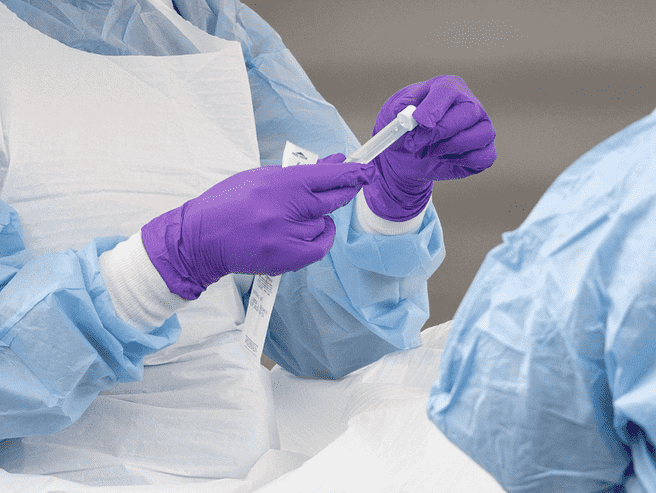The "on-the-spot" swab and DNA tests will help distinguish between Covid-19 and other seasonal illnesses, the government said.
The health secretary said this would be "hugely beneficial" over the winter.
Currently, three quarters of test results are returned within 24 hours and a quarter can take up to two days.
The announcement comes as the government pushed back a July target to regularly test care home staff and residents, saying the number of testing kits had become more limited.
Almost half a million of the new rapid swab tests, called LamPORE, will be available from next week in adult care settings and laboratories, with millions more due to be rolled out later in the year.
Additionally, thousands of DNA test machines, which have already been used in eight London hospitals and can analyse nose swabs, will be rolled out across NHS hospitals from September.
Around 5,000 machines will provide 5.8 million tests in the coming months, the Department for Health said.
There is currently no publicly available data on the accuracy of the new tests but Sir John Bell, Regius Professor of Medicine at Oxford University, who has been advising the government on tests, said they produced the same "sensitivity" as the current lab-based tests.
Health Secretary Matt Hancock described these latest innovations in coronavirus testing as "life-saving".
He added: "Millions of new rapid coronavirus tests will provide on-the-spot results in under 90 minutes, helping us to break chains of transmission quickly.
"The fact these tests can detect flu as well as Covid-19 will be hugely beneficial as we head into winter, so patients can follow the right advice to protect themselves and others."
Business Minister Nadhim Zahawi told BBC Breakfast 450,000 Oxford Nanopore LamPORE tests will be rolled out from next week and then DnaNudge test machines will go into the NHS labs and into other settings, with the hope of providing capacity for 5.8m tests in the coming months.
Dame Anne Johnson, professor of infectious disease and epidemiology at University College London, told BBC Radio 4's Today programme the new tests were "great news" but part of a wider system which needed to act rapidly overall. Rapid diagnosis was useful, but the most important thing was for people to self isolate if they felt ill.
Sir Paul Nurse, director of the Francis Crick Institute and a member of Scientists for Labour, said the government needed to "treat the public as adults" in Covid-19 communications.
He told Today: "We need openness, transparency, scrutiny, and a leadership of people taking responsibility for the decision-making."
SOURCE:BBC



